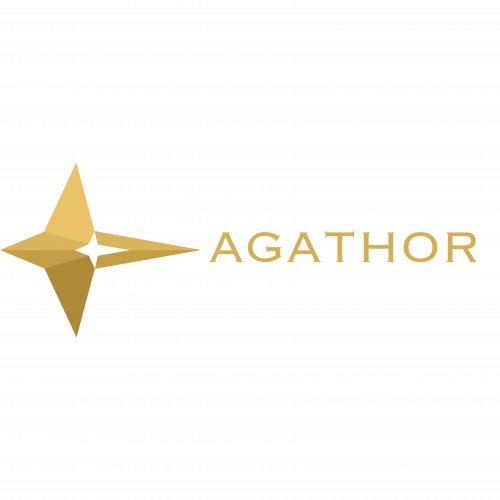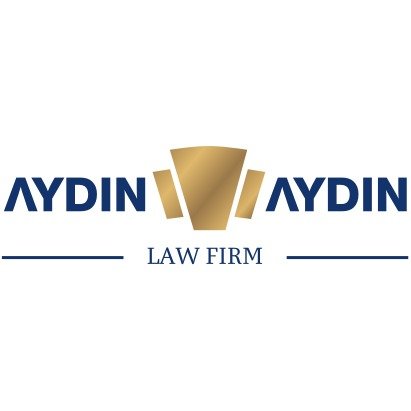Best Project Finance Lawyers in Ankara
Share your needs with us, get contacted by law firms.
Free. Takes 2 min.
List of the best lawyers in Ankara, Turkey
About Project Finance Law in Ankara, Turkey
Project finance refers to the long-term financing of infrastructure and industrial projects based on the projected cash flows of the project rather than the balance sheets of its sponsors. In Ankara, Turkey's political and administrative capital, project finance often involves major energy, infrastructure, and public-private partnership (PPP) ventures. These include the construction of highways, hospitals, renewable energy plants, and transportation hubs. Turkish project finance law is shaped by a combination of local regulations, international best practices, and the unique dynamics of Ankara’s administrative environment. Navigating these complex legal and financial structures is crucial for the successful development and implementation of large-scale projects.
Why You May Need a Lawyer
Project finance transactions are intricate, usually involving multiple stakeholders, extensive documentation, and strict regulatory compliance. Here are some common situations where legal assistance is necessary:
- Drafting or negotiating project agreements, such as concession contracts, EPC (Engineering, Procurement and Construction) contracts, and O&M (Operation and Maintenance) agreements
- Understanding and mitigating risks related to government permits, zoning, and environmental compliance
- Structuring finance arrangements to satisfy both lenders and project sponsors
- Resolving disputes through negotiation, arbitration, or litigation
- Managing cross-border elements, including foreign investment and export credits
- Ensuring compliance with Turkish law, international standards, and lender requirements
For these reasons, engaging a project finance lawyer can help you protect your interests and avoid costly mistakes.
Local Laws Overview
Project finance in Ankara operates within a legal framework composed of several key Turkish statutes and regulations:
- Banks and Lending Regulations: Governed mainly by the Banking Law and Turkish Commercial Code, with oversight by the Banking Regulation and Supervision Agency (BDDK)
- PPP Laws: Several sectoral laws and the General PPP Law cover public-private partnership models, especially in infrastructure and health
- Securities and Collaterals: Turkish law recognizes various security interests that are essential for project finance, including mortgages, pledges, and assignment of receivables
- Permitting and Licensing: Key sectors like energy and construction require securing the right permits from ministry and municipal authorities
- Foreign Investment Regulations: The Foreign Direct Investment Law ensures equal treatment of foreign investors and addresses repatriation of profits
- Environmental Regulations: Compliance with environmental standards and obtaining EIA (Environmental Impact Assessment) reports are often mandatory
Understanding these local laws is fundamental when planning, negotiating, and operating project finance ventures in Ankara.
Frequently Asked Questions
What is project finance and how does it differ from traditional finance?
Project finance is the funding of large projects where the debt and equity used to finance the project are paid back from the cash flow generated by the project itself. It is non-recourse or limited recourse financing, meaning lenders primarily rely on project assets and cash flows for repayment, not the sponsor’s other assets.
What types of projects in Ankara typically use project finance structures?
Typical projects include highways, bridges, energy plants, hospitals, airports, and large scale public infrastructure or PPP ventures. Renewable energy projects have also become increasingly common.
Which authorities regulate project finance projects in Ankara?
Depending on the sector, the main authorities include relevant ministries (Energy, Transportation, Health), the Banking Regulation and Supervision Agency (BDDK), the Capital Markets Board (SPK), and municipal bodies for local permits and zoning.
Can foreign investors participate in project finance deals in Ankara?
Yes, Turkish law allows foreign participation in project finance. The Foreign Direct Investment Law guarantees fair and equal treatment, and foreign investors can repatriate profits subject to legal requirements.
What are the main risks involved in project finance transactions in Turkey?
Risks include regulatory changes, political risks, delays in permits, currency fluctuations, construction risks, and the risk of inadequate project revenue. Legal counsel helps mitigate these risks through proper structuring and contract negotiation.
What security interests are recognized in Turkish project finance?
Turkish law allows mortgages on immovable property, pledges on movable assets and receivables, assignments, and sometimes step-in rights for lenders if the project underperforms.
Are there any incentives or supports for project finance in Turkey?
Certain sectors, especially renewable energy and infrastructure, can benefit from government support mechanisms, incentives, or guarantees to attract private investment.
How do dispute resolution and arbitration work for project finance agreements?
Parties may agree to Turkish courts or to domestic or international arbitration (such as ICC, LCIA, or ISTAC). Arbitration is increasingly preferred in large projects involving foreign parties or complex commercial issues.
What is the typical timeline for closing a project finance deal in Ankara?
Timelines vary by project size and complexity, but it often takes several months to more than a year due to extensive due diligence, regulatory approvals, and negotiation of finance and project documents.
How can a lawyer support project sponsors and lenders?
Lawyers perform risk assessment, draft and negotiate contracts, ensure regulatory compliance, structure transactions, obtain necessary permits, and represent clients in disputes or regulatory proceedings.
Additional Resources
If you are seeking more information or assistance, the following resources can help:
- Banking Regulation and Supervision Agency of Turkey (BDDK): Supervises all banking and lending activities
- Ministry of Energy and Natural Resources: Governs energy projects and regulations
- Capital Markets Board (SPK): Regulates capital market operations and securities
- Union of Chambers and Commodity Exchanges of Turkey (TOBB): Useful for business registration and partnerships
- Ankara Bar Association: Provides lists of qualified lawyers in Ankara, including those specializing in project finance
Next Steps
If you require legal assistance or have questions about project finance in Ankara, consider the following steps:
- Define the details and objectives of your project, including partners and sources of funds
- Consult with a qualified project finance lawyer who understands both Turkish law and international financing standards
- Prepare all necessary documentation and conduct due diligence with your lawyer’s help
- Engage with relevant regulatory bodies early to identify permits and compliance requirements
- Negotiate terms with lenders or investors with legal support to secure favorable conditions and protect your interests
Taking these steps will help ensure the legal and financial success of your project in Ankara, Turkey.
Lawzana helps you find the best lawyers and law firms in Ankara through a curated and pre-screened list of qualified legal professionals. Our platform offers rankings and detailed profiles of attorneys and law firms, allowing you to compare based on practice areas, including Project Finance, experience, and client feedback.
Each profile includes a description of the firm's areas of practice, client reviews, team members and partners, year of establishment, spoken languages, office locations, contact information, social media presence, and any published articles or resources. Most firms on our platform speak English and are experienced in both local and international legal matters.
Get a quote from top-rated law firms in Ankara, Turkey — quickly, securely, and without unnecessary hassle.
Disclaimer:
The information provided on this page is for general informational purposes only and does not constitute legal advice. While we strive to ensure the accuracy and relevance of the content, legal information may change over time, and interpretations of the law can vary. You should always consult with a qualified legal professional for advice specific to your situation.
We disclaim all liability for actions taken or not taken based on the content of this page. If you believe any information is incorrect or outdated, please contact us, and we will review and update it where appropriate.













